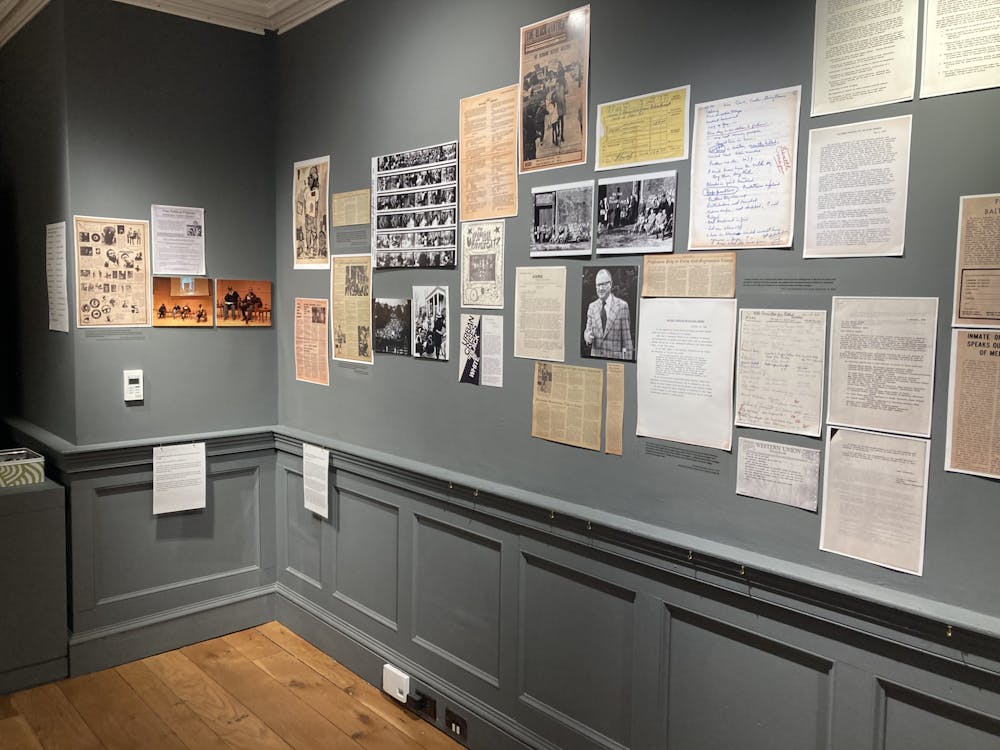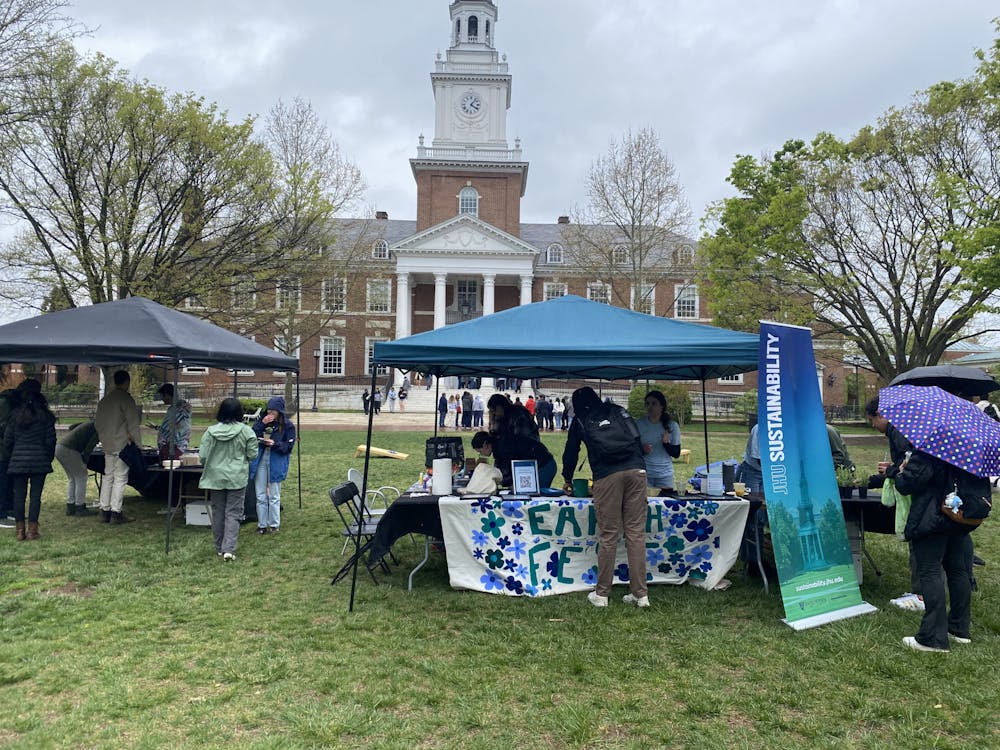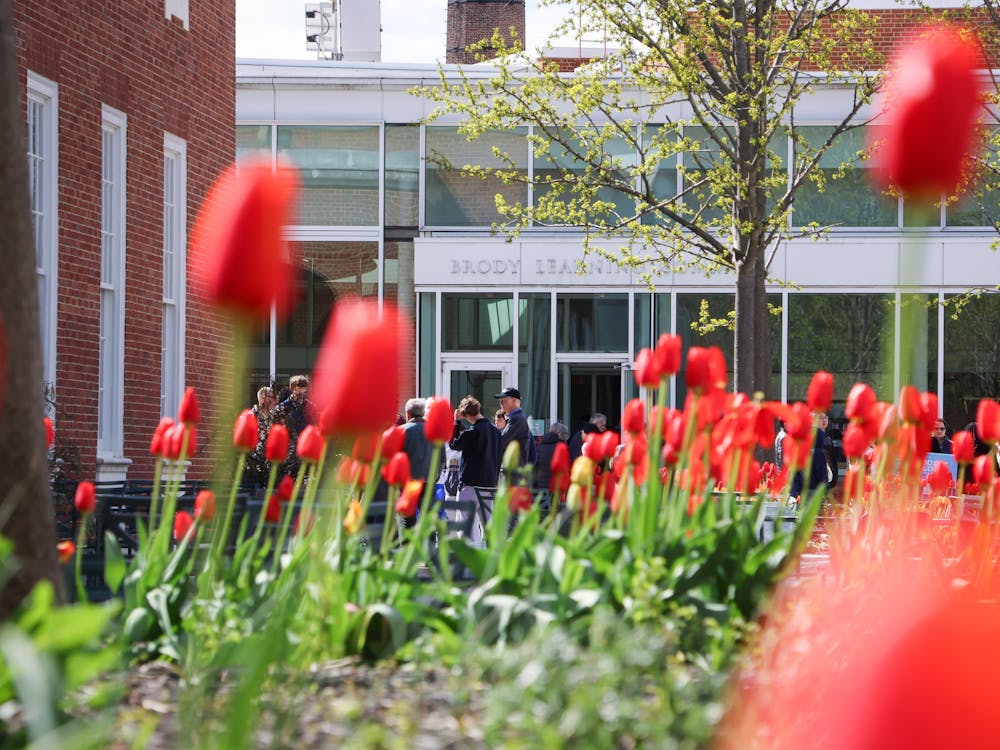Itamar Marcus, the founder of Israeli media research institute Palestinian Media Watch (PMW), spoke in Hodson Hall on Nov. 13 about how the Palestinian government portrays Israel in its media.
The Coalition of Hopkins Activists for Israel (CHAI) and Hopkins American Partnership for Israel (HAPI) sponsored the event.
PMW’s goal is to monitor the messages the Palestinian government is sending through the media. Marcus wanted to see what Palestinian children were learning from the media and how it influenced their views of Israel.
Marcus referenced the recent controversy surrounding the Temple Mount in Jerusalem, a holy site for Jews, Christians and Muslims. Mahmoud Abbas, president of the Palestinian Authority, gave a controversial speech discouraging Jews from entering the site.
“Nothing new happened now that Mahmoud Abbas all of a sudden decided to make this speech,” Marcus said.
The speech Abbas made was broadcast on Palestinian media 19 times in three days, and has now been broadcasted over 30 times.
Marcus also discussed what he believed to be the origins of the second Intifada, a Palestinian uprising in the early 2000s, citing remarks regarding the Temple Mount.
After former Prime Minister Ariel Sharon visited the site, Yasser Arafat, then-president of the Palestinian Authority, made a statement that Sharon’s presence on the Mount was defiling the land. Marcus said this anti-Israeli sentiment was also present in the media.
Marcus compared Palestinian propaganda to the Nazis’ anti-Semitic propaganda, saying that both depicted the Jew as having a long nose and the intent to hurt innocent people.
In a Palestinian cartoon that Marcus shared, a father is sitting with his son, telling his son to throw stones at people using a slingshot. Marcus alleged that the media has influenced Palestinian children to throw stones at Israelis.
“How many of you have seen pictures in the newspapers making Israel look terrible when Israeli soldiers have had to arrest Palestinian children?” Marcus said. “The Palestinians want children on the front line because they know it is so difficult for Israel’s image.”
Pictures like these have appeared in major Palestinian newspapers. Marcus said that these cartoons are another example of how the Palestinian government sends its messages to the public.
Marcus also claimed that the Palestinian media glorifies some of the people who have killed Israelis due to government encouragement.
“Abbas is very much involved in this whole process,” Marcus said.
According to Marcus, when three Israeli boys were kidnapped and killed this summer, Palestinian political organizations Hamas and Fattah relayed the event to the Palestinians in a positive light. In a poll taken in September 2014, 57 percent of Palestinians supported the kidnapping and 54 percent supported the killing.
“Who is making peace? Who is promoting peace?” Marcus said. “Why isn’t that what they do to get ahead?”
Marcus also discussed anti-Israel songs for children that have been broadcasted through Palestinian media programs. He showed excerpts from one such children’s show and talked about the lasting power of music.
“Songs are very special,” Marcus said. “What do you remember from kindergarten? You don’t remember what you were told in kindergarten, but you do remember the songs.”
Marcus also said that anti-Israel sentiment in Palestine is not related to Islam, but instead is a norm created and reinforced by the Palestinian government.
“You’ve got these two categories of the non-recognition which is an attack on Israel as a nation, Israel as a state, anticipating the day when Israel will not exist, and you’ve got demonization, which is attacking us as human beings... We are enemies of Allah,“ Marcus said. “This is not a problem with Islam. This is a problem with the Palestinian Authority.”
According to Marcus, Palestinian religious leaders manipulate Islamic messages to communicate anti-Israel sentiment. Polls show that 90 percent of Palestinians identify themselves as religious.
“Their religious leaders are saying that their religion inhibits them from accepting Israel’s existence,” Marcus said. “The Palestinian Authority and Hamas — both teach the source to mean that they have to fight the Jews today.”
PMW has also worked to promote peace, believing that if the organization works with leaders around the world, it can encourage them to pressure the Palestinian media to promote peace.
Students in attendance said that they appreciated hearing different types of speakers discuss the Israeli-Palestinian conflict.
“I thought he was really interesting and presented a side to the conflict that hasn’t been discussed on campus,” CHAI Outreach Director Danielle Blustein said.
“I think it is really important for everyone to recognize that there are many varying opinions on many aspects of the conflict,” Sophie Tulkoff, CHAI’s programming chair, said. “I think that while his presentation was really interesting and definitely shed light onto what is going on in more extreme Palestinian media sources, it’s not necessarily valid to take that at face value, and you really need to understand that. And I really encourage people who went to the speaker or who heard about the speaker to continue learning about the conflict.”
Tulkoff said that although speakers who show a clear bias towards one side of the conflict can offend some students, she thinks it is still important that Hopkins hosts speakers with strong opinions.
“I would just encourage people to keep going and not to get discouraged if they felt the speaker didn’t really reflect their opinions or might have been a little too on one side of the conflict,” Tulkoff said. “[CHAI, as a] pro-Israel group on campus, definitely [encourages] dialogue with all sorts of opinions.”
Dan Friedman, president of HAPI, said that his group invited Marcus to speak at Hopkins because of another HAPI board member’s affiliation with StandWithUs, a national pro-Israel organization.
“There are lots of national Jewish groups that try and bring a number of speakers to campus with varying degrees of political affiliation and orientation on the spectrum,” Friedman said. “A lot of his stuff he presented at our event itself is very recent that PMW hadn’t put out to the public yet.”















Please note All comments are eligible for publication in The News-Letter.